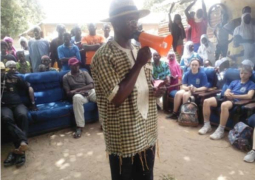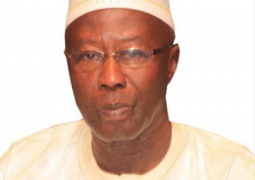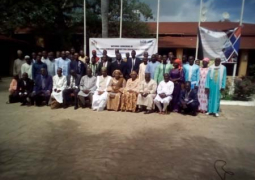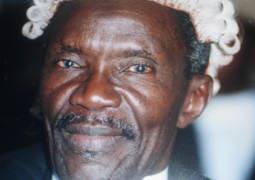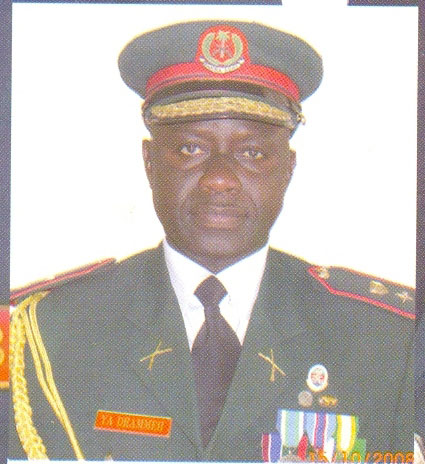
The
deputy Chief of Defence Staff has said that the Gambia Armed Forces had gone
through difficult times in the past 22 years, so “it would take considerable
time” to refocus and redirect the thinking of the institution.
Deputy
CDS Yankuba Drammeh said this is why President Adama Barrow’s plans to
undertake security sector reforms aimed at shaping an armed forces that would
be responsive to the needs and aspirations of Gambians is very crucial.
According
to a press release from the State House, Major General Drammeh made this remark
on Wednesday shortly after a delegation from the UK’s Royal College of Defence
Studies paid a courtesy call on the Gambian leader.
The
visit was part of a sub-regional study tour being conducted by the college
students who are currently on a Masters level peace course on how nations
achieve security, stability and prosperity.
The delegation of 13 students from different countries was led by Major
General Craig Lawrence. British
Ambassador to The Gambia Colin Crorkin accompanied the delegation to the
presidency.
Speaking
to reporters after the meeting with the president, deputy CDS Drammeh said the
proposed security sector reform would also make the Gambia Armed Forces
accountable to civil authority and grounded in the rule of law and
international standards.
“With
commitment and determination within the armed forces, and political support, it
is possible to achieve its desired goal as an institution and redeem its
image,” Major General Drammeh said.
Speaking
to the delegation, President Barrow said under the former regime, some of the
Gambian security forces served only the leader rather than the nation.
The
President said he was optimistic about international support for security
sector reforms, which would include both infrastructure and training.
He
spoke of the political will and determination of his government to ensure that
The Gambia maintains disciplined and professional security forces in a
democratic environment.
Major
General Lawrence explained that the meeting with the president provided the
students with an overview of the kinds of challenges that can be encountered,
and how they, as students from developed and developing countries, could learn
from The Gambia’s experience to make their countries more secure, stable and
prosperous.
Major
General Lawrence noted that the hierarchy of The Gambia’s presidential system
was similar to that of other African countries like Nigeria, Senegal, and
Sierra Leone, where the power of the individual leader drove the country
forward.
He
said the students were very keen to understand the organisation of a state, the
role of institutions like the justice and foreign ministries, and the armed
forces in the development of the country.


